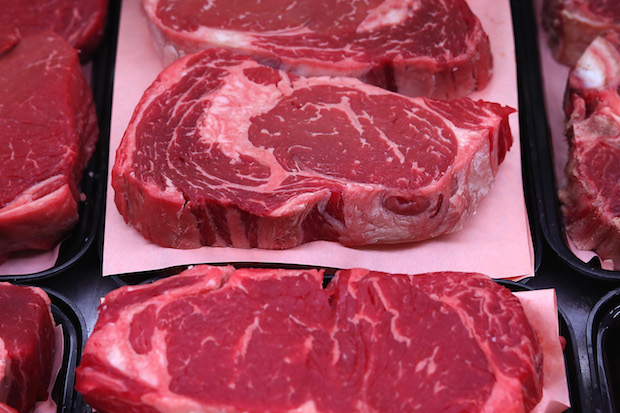Dear Peta,
Thank you for your recent letter objecting to my campaign to support British livestock farming and encouraging sustainable red meat industry.
I read with interest your argument that consuming red meat is ‘out of touch’ and ‘irresponsible’. I am sure the millions of ordinary Britons who have enjoyed roast beef or a shepherd’s pie will be surprised to learn that they are ‘out of touch’ and with good reason.
The House of Commons recently organised a ‘World Vegan Month’ for restaurants on the estate to promote veganism. There is a World Vegan Month, World Vegan Day and National Vegetarian Week but nothing to promote responsible, sustainable produced red meat such as beef and lamb. It is only fair that we should have a ‘Red Meat Month’ to support British livestock farmers and to promote the industry’s importance to rural communities, the local economy and biodiversity.
One of the greatest challenges facing governments across the globe is how we feed a world population that will reach nine billion by 2050 using existing agricultural land whilst minimising our impact on the natural environment. Grazing cattle and sheep are often given disproportionate blame for carbon emissions from the agriculture sector and there is not enough recognition amongst some conservation groups of the role livestock farming, particularly grass-fed beef and lamb, plays in storing carbon, protecting biodiversity and utilising marginal land that cannot be used for arable crops but can grow very good grass.
Almost 65% of UK farmland is only suitable for growing grass where sheep and cattle are grazed. We should be utilising this marginal land, which cannot be used for arable crops but can grow good grass and provide good biodiversity and environmental benefits. Beef cattle and sheep play a vital role in food production, because of their ability to turn non-human food into edible proteins and nutrients. Limiting the role of British livestock will reduce the efficiency with which we use our land for food production and will therefore reduce our ability to be self-sufficient.
These points are often neglected, or at least not adequately considered, by those who advocate meat-free diets. If we were all to switch to a diet free of meat much of our agricultural land would be unfarmed and we would see a considerable drop in the efficiency of our land to food conversion, in addition to the negative impacts on biodiversity.
Red meat can play an important part in a healthy balanced diet as they have a wide variety of nutrients in a relatively small amount of food and is a major source of protein. It also an important source of B vitamins, including B12, which is not found naturally in fruits and vegetables.
I am afraid you have missed the point of my campaign to encourage Parliament to celebrate ‘Red Meat Month’. This is about how we can support our livestock farming and encourage consumers to eat locally sourced meat that is bred to the highest animal welfare standards and is part of a traceable food chain. The best way to achieve this is to buy British.
Yours sincerely,
Neil Parish MP
Update: Steerpike has received a strongly-worded statement from Peta in response to Parish’s letter.
Dear Neil Parish,
Thank you for your letter. We understood your point but not your position. Every month is ‘red meat month’, from the government subsidies given to meat and dairy farmers to the multi-billion pound corporations that promote their cruel and harmful products. The point of World Vegan Month is to promote an alternative voice to those of the meat and dairy industries that saturate our billboards, airwaves and more.
You write that ‘it is only fair that we should have a ‘Red Meat Month” – but fair to whom? Certainly not animals. Nor to starving people around the world who could use the grains we inefficiently funnel through animals, producing only a fraction of the food we could eat as primary proteins. Nor the Britons suffering from heart disease and strokes who need to hear that red processed meat has been conclusively linked to an increased risk of developing these and other maladies. The logic against eating animals is irrefutable.
If we are ever to create a cleaner – and kinder – world fit to support the many billions of us on this planet, we can’t carry on the way we are going. A 2010 UN report titled Assessing the Environmental Impacts of Production and Consumption: Priority Products and Materials states that ‘[i]mpacts from agriculture are expected to increase substantially due to population growth’ and that ‘a substantial reduction of impacts would only be possible with a substantial worldwide diet change, away from animal products’.
So if you’re truly concerned about ‘how we feed a world population that will reach nine billion by 2050 using existing agricultural land whilst minimising our impact on the natural environment’, then put your money where your mouth is and go vegan.
Yours sincerely,
Mimi Bekhechi, Peta UK Director







Comments